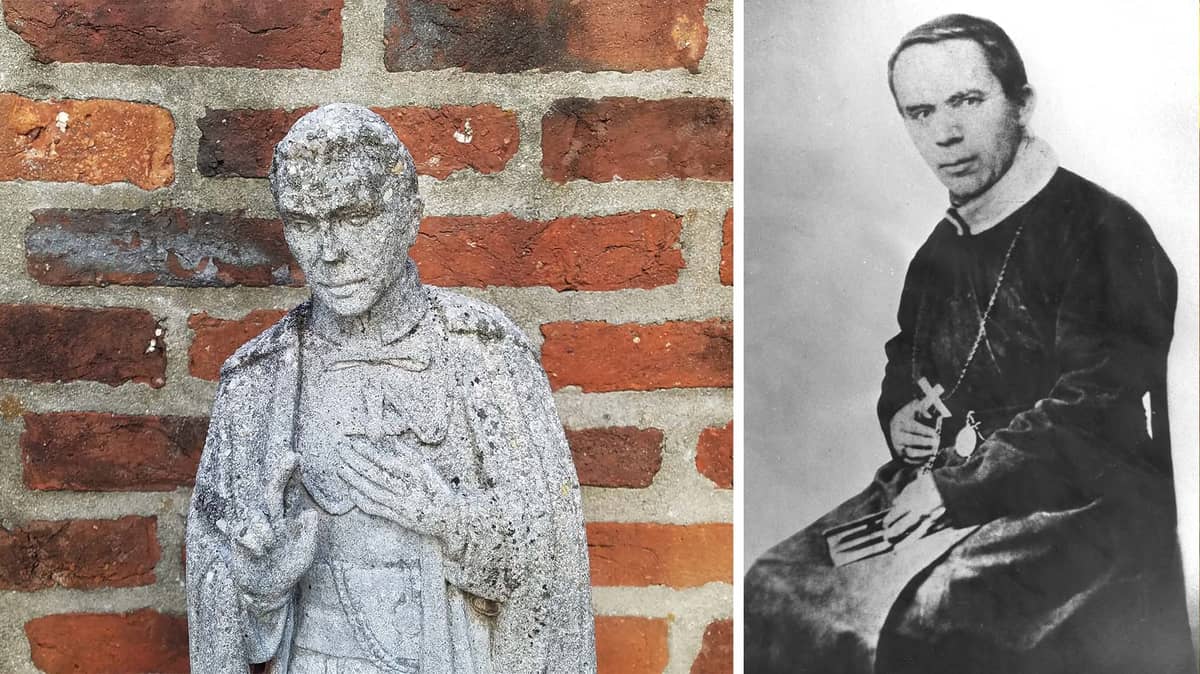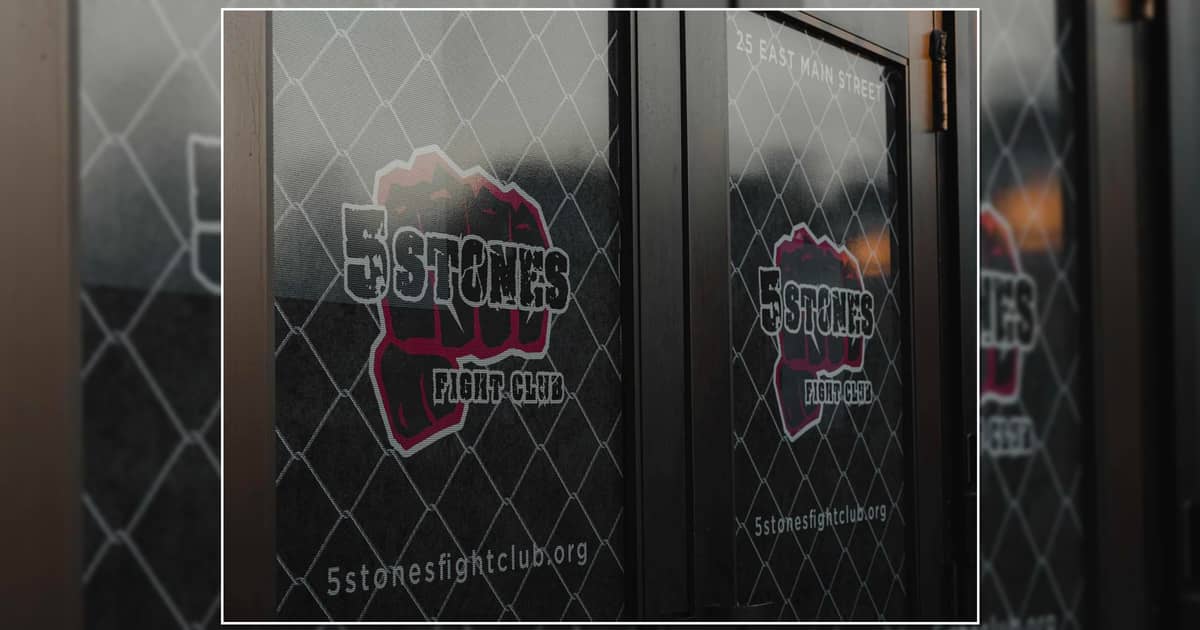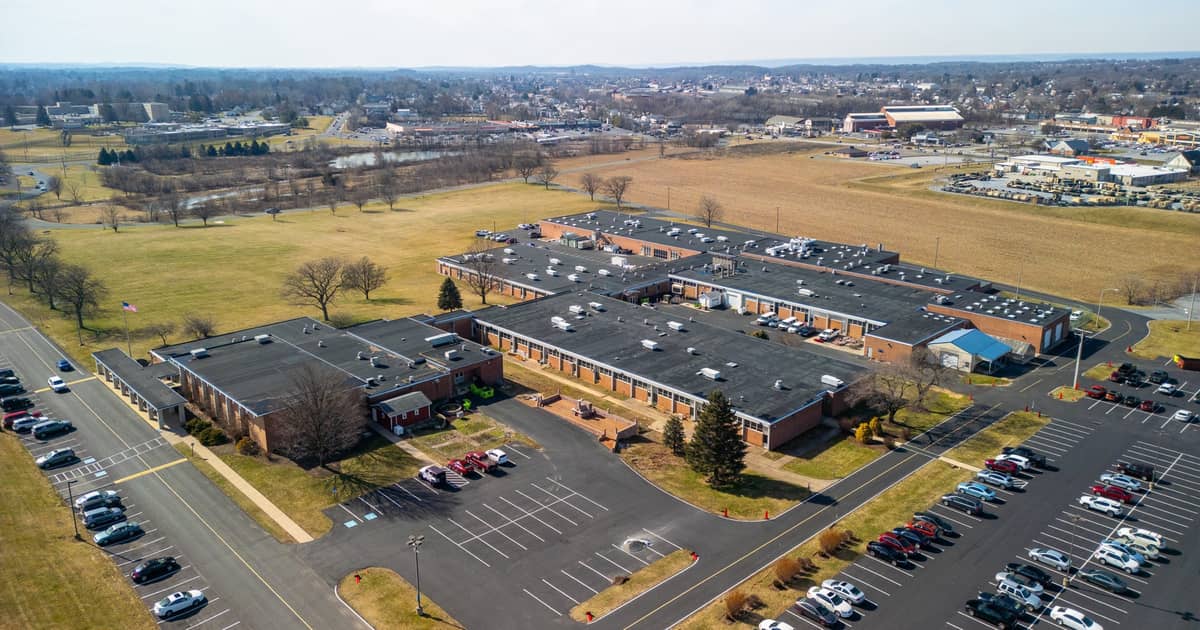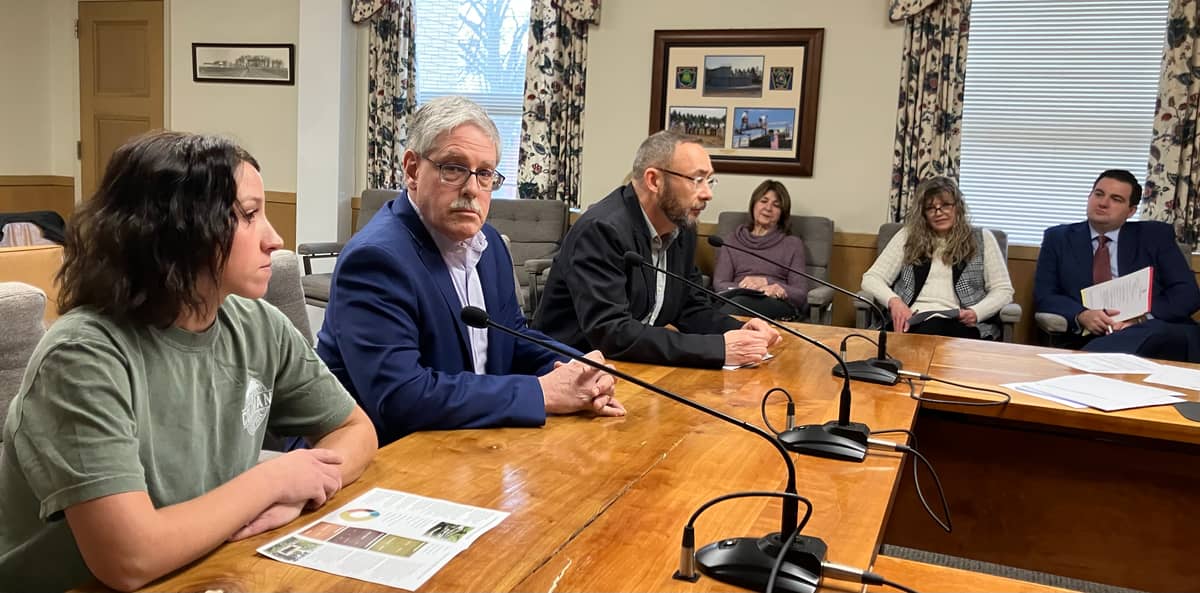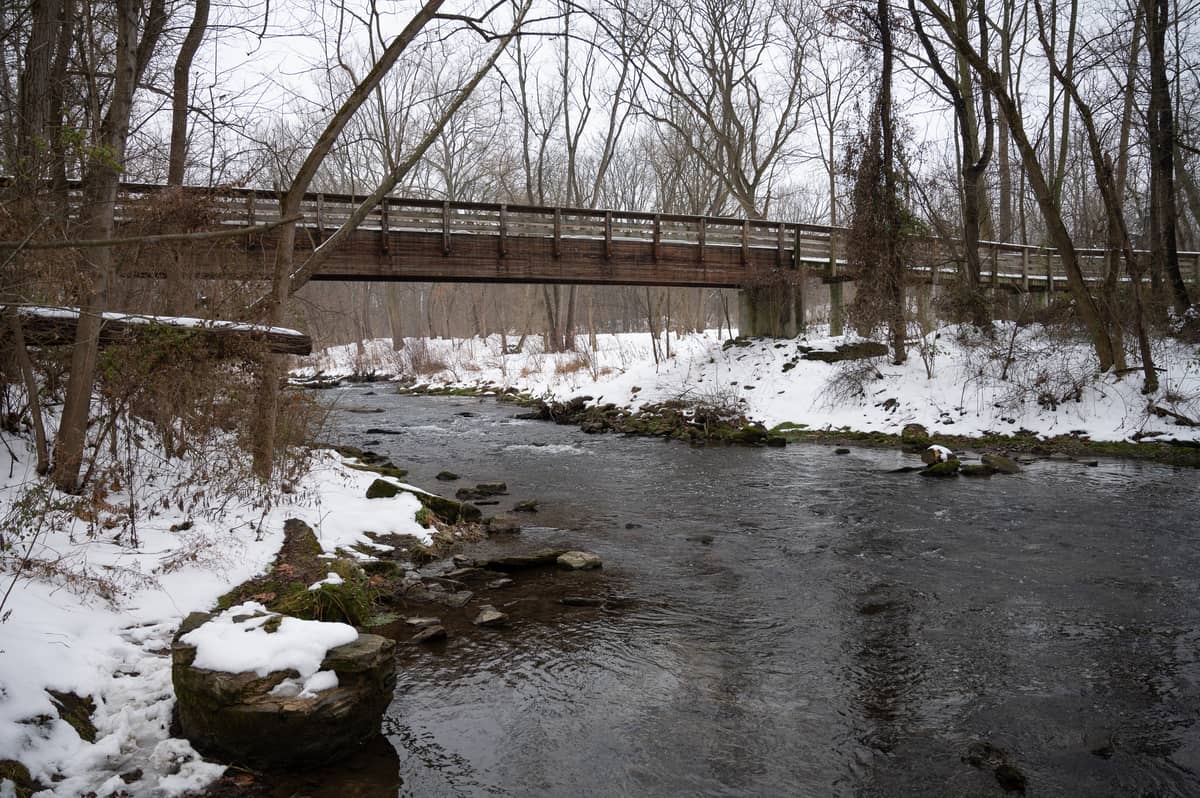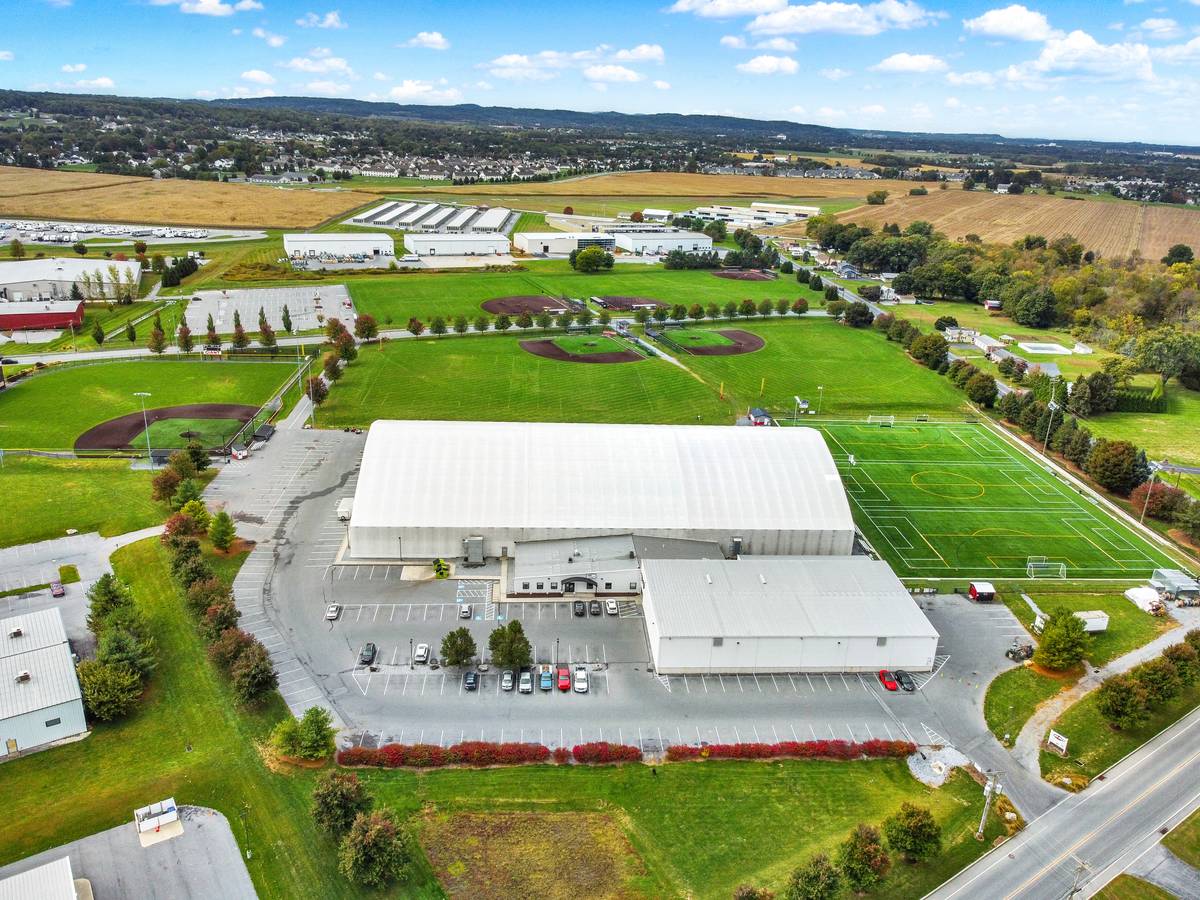A solitary monument is all that’s left of the St. Lawrence Catholic Church near Colebrook. It serves as a humble reminder of the work of St. John Neumann, the man who founded it and the first male American to be canonized.
John Neumann was born in the then-Bohemian town of Prachatice (now in the Czech Republic) on March 28, 1811. As a young man, Neumann was unsure of his trajectory in life. He wished to be ordained as a priest in his homeland, but his ability to speak English coupled with a surplus of priests in the old country spurred him to look overseas.

On June 2, 1836, Neumann arrived in New York City after a 43-day voyage on the ship Europa, and the next day he was welcomed into the Diocese of New York. Neumann was known for his tireless work on the road, traveling the Niagara countryside and establishing dozens of churches throughout the mid-Atlantic.
In 1848, Neumann wrote in his personal diary that he had been granted permission to build a church in Colebrook for the workers who lived nearby.
Neumann was consecrated as the fourth Bishop of Philadelphia on his birthday in 1852. In that same year, the Colebrook church was erected on a plot of land 50 feet square, under the supervision of Father Francis Marshall, who lived in Elizabethtown. It was a small but welcome house of worship for local Catholic furnace workers, who toiled a mile down the road at the Colebrook Furnace and lived in nearby homes.
Little is known about the church itself. Beside the church there was a small graveyard of seven men, women, and children, whose original tombstones are almost certainly lost to time.
In July of 1853, Neumann blessed the church and confirmed 18 of its parishioners, followed by 11 more on a subsequent 1857 visit.

When the furnace ceased operations during the Civil War, the Catholic workers moved on to new opportunities, and the church was shuttered in 1862. Two years earlier, Neumann had died unexpectedly while running errands in Philadelphia, at the age of 48.
In spite of the short time both Neumann and the St. Lawrence church spent on Earth, they both served important roles and were eventually recognized for it.
Neumann was beatified in 1963 before being canonized in 1977 by Pope Paul VI. Though he was an immigrant, he is still recognized as the first male American saint by virtue of his citizenship; the Pope noted at the time that “he is the glory of all emigrants.” A shrine to Neumann, which also holds the remains of his body, exists in Philadelphia.
Read More: The Colebrook Furnace ghost story
As for the church, it would likely have drifted further into obscurity were it not for the efforts of an incredible Elizabethtown resident.

The late Anton Simsack, a member of the Blessed John N. Neumann Committee, did research into the church in the 1960s and managed to locate the former site, which, after a century of neglect, had been covered up by undergrowth. Work began on clearing the site in June of 1969.
Simsack was also a noted inventor, engineer, and historic figure in his own right. He was born in the Rhineland, Germany, in 1893. Before coming to America, he served as a valet to Kaiser Wilhelm’s son, Prince Albert Friedrich. He started his own engineering firm, became a close friend of legendary aviator Charles Lindbergh, and in 1969, even designed a component of the Apollo 9 spacecraft.
He continued work on the Colebrook site with the help of dedicated volunteers over the next seven years, even as he entered his eighth decade of life. A profile by the Elizabethtown Chronicle in November 1976 quoted Simsack on his dedication and vitality: “God is good to me.”
The area was finished in the summer of 1977 and the once-forgotten St. Lawrence church was memorialized with a small monument constructed using bricks of the original structure and a statue of Neumann.
The monument, which sits adjacent to private property between Epler and Cut Off Road on Route 117, is still there. The statue of St. Neumann is about knee-height and still recognizable, if a bit worn down.

Even though the monument is now somewhat old, to say nothing of the site of the church site itself, it remains, as Simsack put it in a June 1977 Lebanon Daily News article, “holy ground” – and a reminder of the efforts of the first male American saint made for the Catholic population of Colebrook.
You can make a difference for LebTown.
Stories like this are brought to you for free thanks to the support of our members and advertisers. Join our cause and help sustain journalism in Lebanon County by signing up as a member.
Every Monday, our members get a glimpse of what’s coming ahead the rest of the week. Joining LebTown as a member is the best decision you can make if you care about local news in Lebanon County. Plus, invites to our exclusive Facebook group and happy hours, and other special offers.
Learn more and join now here.
This article has been updated to clarify that John Neumann was the first male American saint. The first American to be canonized was Elizabeth Ann Seton.

